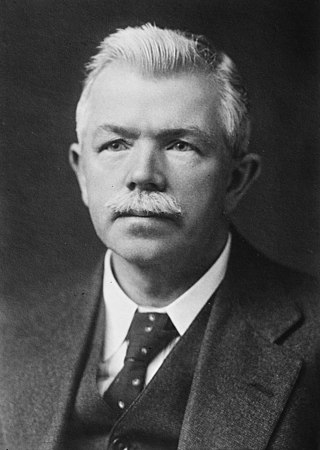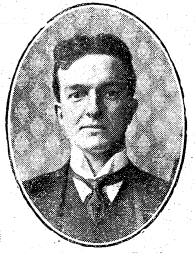Related Research Articles

William David Trimble, Baron Trimble, was a Northern Irish politician who was the inaugural First Minister of Northern Ireland from 1998 to 2002, and leader of the Ulster Unionist Party (UUP) from 1995 to 2005. He was also Member of Parliament (MP) for Upper Bann from 1990 to 2005 and Member of the Legislative Assembly (MLA) for Upper Bann from 1998 to 2007.

Patrick Doherty is a retired Sinn Féin politician, and was the abstentionist Member of Parliament for West Tyrone from 2001 to 2017. He was a member of the Northern Ireland Assembly for the Assembly constituency of the same name from June 1998 to June 2012. Doherty served as Vice President of Sinn Féin from 1988 to 2009, when Mary Lou McDonald became the party's new Vice President.

Nigel Alexander Dodds, Baron Dodds of Duncairn,, is a Northern Irish unionist politician and barrister serving as Leader of the Democratic Unionist Party (DUP) in the House of Lords since 2021. He previously served as deputy leader of the DUP from 2008 to 2021 and leader of the DUP in the House of Commons from 2010 to 2019.
Robert Law McCartney, KC is a Northern Irish barrister and Unionist politician who was leader of the UK Unionist Party (UKUP) from 1995 to 2008.

John Robert Clynes was a British trade unionist and Labour Party politician. He was a Member of Parliament (MP) for 35 years, and as Leader of the Labour Party (1921–1922), led the party in its breakthrough at the 1922 general election.

Augustine Birrell KC was a British Liberal Party politician, who was Chief Secretary for Ireland from 1907 to 1916. In this post, he was praised for enabling tenant farmers to own their property, and for extending university education for Catholics. But he was criticised for failing to take action against the rebels before the Easter Rising, and resigned. A barrister by training, he was also an author, noted for humorous essays.

William St John Fremantle Brodrick, 1st Earl of Midleton, KP, PC, DL, styled as St John Brodrick until 1907 and as Viscount Midleton between 1907 and 1920, was a British Conservative and Irish Unionist Alliance politician. He served as a Member of Parliament (MP) from 1880 to 1906, as a government minister from 1886 to 1892 and from 1895 to 1900, and as a Cabinet minister from 1900 to 1905.

The partition of Ireland was the process by which the Government of the United Kingdom of Great Britain and Ireland (UK) divided Ireland into two self-governing polities: Northern Ireland and Southern Ireland. It was enacted on 3 May 1921 under the Government of Ireland Act 1920. The Act intended both territories to remain within the United Kingdom and contained provisions for their eventual reunification. The smaller Northern Ireland was duly created with a devolved government and remained part of the UK. The larger Southern Ireland was not recognised by most of its citizens, who instead recognised the self-declared 32-county Irish Republic. On 6 December 1922 Ireland was partitioned. At that time the territory of Southern Ireland left the UK and became the Irish Free State, now known as the Republic of Ireland.

Joseph Devlin was an Irish journalist and influential nationalist politician. He was a Member of Parliament (MP) for the Irish Parliamentary Party in the House of Commons of the United Kingdom. Later Devlin was an MP and leader of the Nationalist Party in the Parliament of Northern Ireland. He was referred to as "the duodecimo Demosthenes" by the Irish politician Tim Healy which Devlin took as a compliment.
John Beattie was a Northern Ireland Labour Party (NILP) politician from Northern Ireland. He was a teacher by profession. In 1925, he became a Member of the Northern Ireland House of Commons for Belfast East. He represented Belfast Pottinger from 1929. At one point he served as leader of the NILP.

Lt Col Sir William James Allen KBE DSO was a Northern Irish unionist politician, soldier and businessman.
Hugh Ferguson was a Scottish Unionist Party politician.
Thomas Leslie Teevan was an Ulster Unionist Party politician and lawyer, notable for his extreme youth when first elected, brief career, and very early death.
James Godfrey MacManaway, MBE was a British Unionist politician and Church of Ireland cleric, notable for being disqualified as a Member of Parliament, owing to his status as a priest.

Alfred Henry Scott was a British Liberal politician.

Edward Joseph Kelly was an Irish nationalist politician and Member of Parliament in the House of Commons of the United Kingdom of Great Britain and Ireland. He was a solicitor, barrister-at-law and Senior Counsel (SC).

The Home Rule movement was a movement that campaigned for self-government for Ireland within the United Kingdom of Great Britain and Ireland. It was the dominant political movement of Irish nationalism from 1870 to the end of World War I.

The Linlithgowshire by-election was a Parliamentary by-election held on 7 November 1913. The constituency returned one Member of Parliament (MP) to the House of Commons of the United Kingdom, elected by the first past the post voting system.
James Carrige Rushe Lardner was an Irish Nationalist Member of the Parliament of the United Kingdom for North Monaghan, 1907–18.
William John MacGeagh MacCaw was a British politician and Member of Parliament (MP) in the House of Commons of the United Kingdom of Great Britain and Ireland.
References
- 1 2 Who's Who of British Members of Parliament: Volume III 1919–1945, edited by M. Stenton and S. Lees (The Harvester Press 1979)
- ↑ "West Down Election", Manchester Guardian , 3 September 1907
- ↑ "Mr Hugh Hayes (Hansard)". Parliamentary Debates (Hansard) .